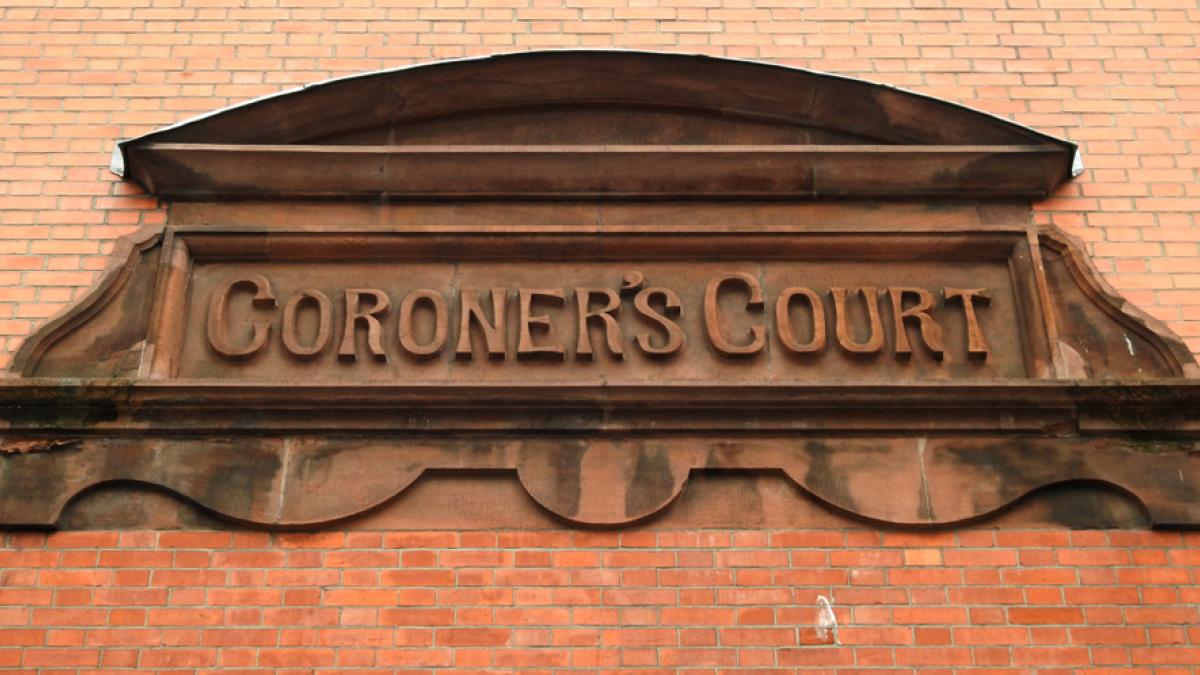Find out more about the coroners' inquest process, and what you need to include in any account of your involvement with a deceased patient

You may be asked to provide information to the Coroner (England and Wales, NI) or Procurator Fiscal (Scotland) when a formal investigation into a person’s death is required.
You may also be asked to attend the Inquest (England and Wales, NI ) or Fatal Accident Inquiry (Scotland)
Coroners' investigations
A coroner is required to investigate a person’s death in certain circumstances. An investigation is a public judicial inquiry and aims to answer four questions:
- Who the deceased was
- When they died
- Where they died
- How they died.
The coroner summarises the circumstances leading to the death and gives a verdict on the cause of death. This can be accidental death, misadventure, unlawful killing or natural causes.
An inquest does not apportion blame for a person’s death but a Coroner does have the power to report findings to the relevant authority to prevent similar deaths in the future.
Confidentiality
The duty of confidentiality still applies after the death of a patient. There is an exception to this when a Coroner requests medical records and relevant information about the deceased, even if the patient told you information in confidence. If the records contain sensitive information that the deceased may not have wanted disclosed, you must alert the coroner beforehand.
The Coroner, or a police officer acting as the Coroner’s Officer, has the power to compel you to produce documents and you may be fined if you do not provide the information requested.
If the Coroner asks for information about living patients as part of their inquiry, you should seek the advice of the coroner about the need for patient consent before providing records. Send original records to the Coroner and keep copies of information you send.
Preparing a report for the Coroner
See our information page on writing a statement.
In addition for coroners' reports make sure you
- Describe any hospital or other referrals you made e.g. safeguarding
- Identify other clinicians that you were aware of involved in the care of the deceased with their full name and professional status but you should not comment on the standard of care they provided
- Concentrate on your observations and understanding of the patient to put findings into a relevant context.
- Write acronyms and abbreviations in full the first time you use them. Do not use jargon.
- Check your report is a standalone document. Do not assume the reader has access to other documents at the time they read your report or will have any other knowledge of the case, or the patient.
- Ensure you provide your report in the timescales required. Any delay in submitting your report may result in criticism of you by the coroner.
Attending an inquest hearing
Depending on your degree of involvement with the deceased, you may be asked to attend the Inquest / Fatal Accident Inquiry and give oral evidence, even if you have moved on to a different place of work.
If the NHS or a large private provider employed you at the time, your organisation may arrange a meeting with all members of staff involved in treating the deceased and may provide legal representation for staff at the inquest if required.
If you are in independent private practice, you do not need legal representation at an Inquest as you are there to provide factual information only.
An inquest does not apportion blame to individual clinicians, but if your involvement with the deceased is directly criticised by the Coroner you should make a PLI notification here
Getting support for coroners' inquests
If the NHS employs you, your organisation will have a designated contact who links with the Coroner’s office. This is usually someone in the legal services department or patient liaison services. They will contact you if you are required to write a report and/or attend an inquest and you should contact them for support.
If a private provider employs you, or you work for yourself in independent private practice, and do not have access to a legal services department or patient liaison services, you should contact the Coroner / Procurator Fiscal's office directly for information.
The process for investigating and person’s death is varies between England and Wales, Scotland and Northern Ireland.



































